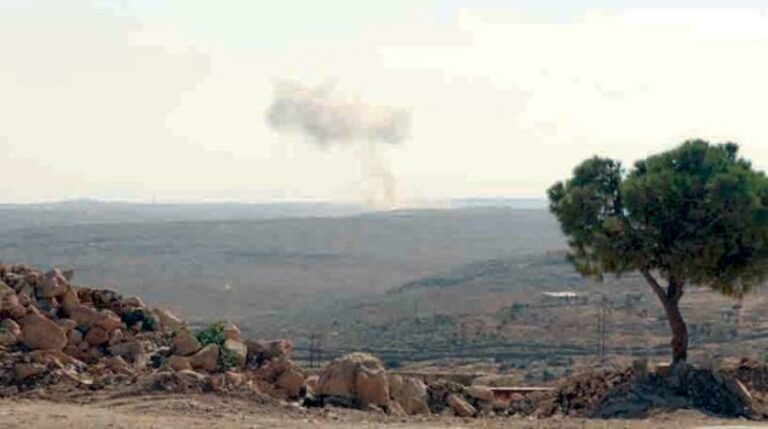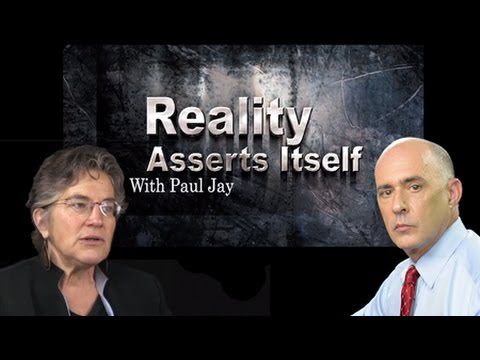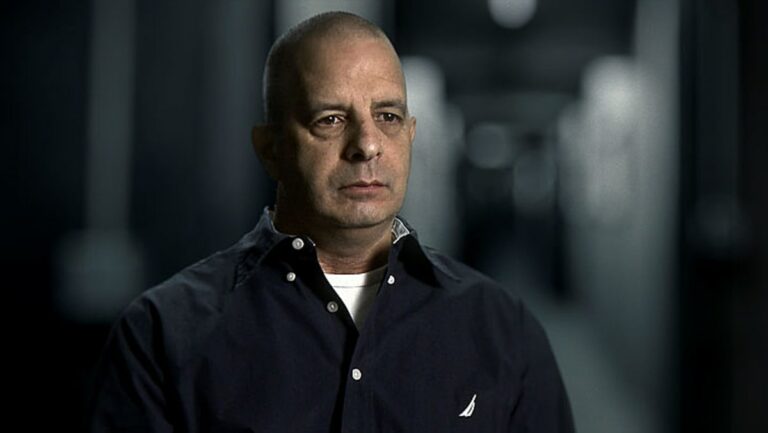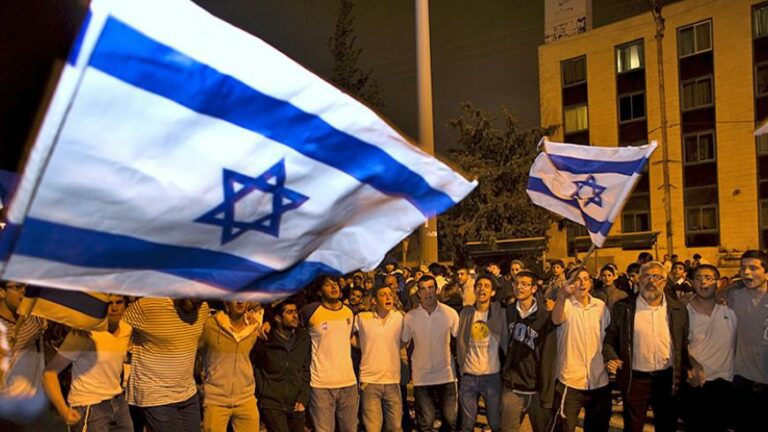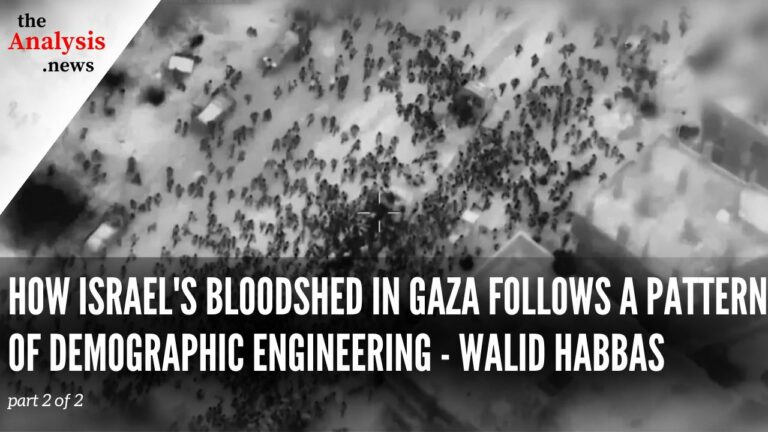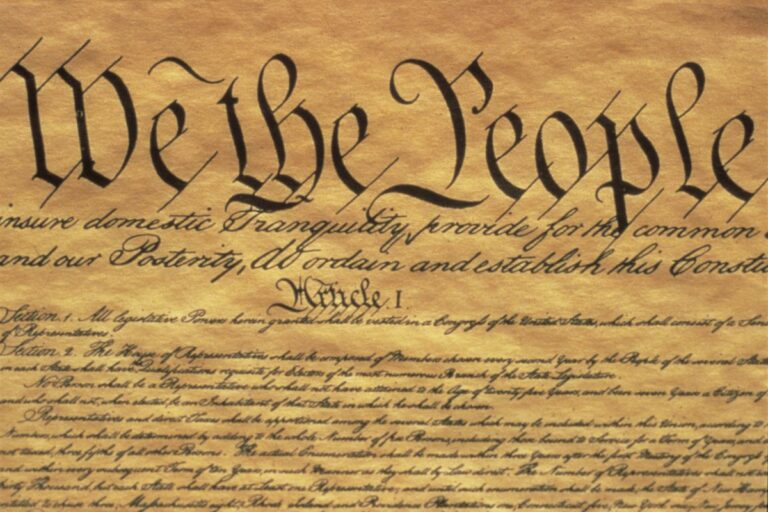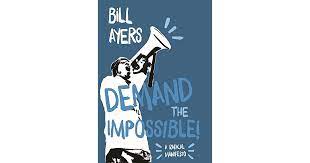Podcast: Play in new window | Download | Embed
Subscribe Apple Podcasts | Spotify | Android | iHeartRadio | Blubrry | Email | TuneIn | Deezer | RSS
On Reality Asserts Itself with Paul Jay, Phyllis Bennis examines proposals to resolve the Israeli-Palestinian conflict. This is an episode of Reality Asserts Itself, produced December 13, 2013, with Paul Jay.
TRANSCRIPT
PAUL JAY, SENIOR EDITOR, TRNN: Welcome back to The Real News Network and Reality Asserts Itself. I’m Paul Jay. And we’re interviewing Phyllis Bennis on the Middle East. And she now joined us again in the studio.
Thanks for joining us again.
PHYLLIS BENNIS, FELLOW, INSTITUTE FOR POLICY STUDIES: Great to be back.
JAY: And Phyllis’s bio’s below here. And I’ve read her interview in–her resume in all the other parts of the interview. So, just very quickly, Phyllis Bennis is the director of the New Internationalism Project at the Institute for Policy Studies.
So let’s get right into it.
One of the key questions of the Middle East–I actually don’t think it’s the question. Everyone wants to say the Israeli-Palestinian conflict is the question, and I actually personally don’t think it is. I think oil’s the question, and if there was the most wonderful solution to Israel-Palestine, there would still be all hell breaking loose over who’s going to control oil and who’s going to control the Middle East.
That being said, it is certainly a critical issue, and it’s certainly, in terms of public opinion in the region, probably the most important issue emotionally for everyone.
BENNIS: Absolutely.
JAY: So it is a touchstone issue at the very least, and perhaps more.
So let’s jump to something. If rational minds could assert themselves in the Israeli-Palestinian negotiations, there are still some facts on the ground one would have to deal with. For example, there is a great deal of racist hatred on both sides. We know why. We know the history. But there’s tremendous racism against Palestinians in Israel. The culture is–. I was there just a couple of years ago. I was blown away. I would have thought I would have been in slave society, southern United States, the way people talked about–openly without a shrug. But I heard lots of racism on the–I was in Ramallah and on the West Bank. I actually heard much more racism in Israel than I heard in the West Bank, but there’s plenty. And I understand why. I’m not making these equivalent. We had–we talked to this young teenage girl who talked about, you know, hating Jewish children. Why? ‘Cause she saw them on television signing their names on bombs that were going to be dropped on Gaza. So it’s not an equivalent thing. But it’s a fact. There is a lot of hatred on both sides.
BENNIS: Hatred’s not the same as racism. There is an important distinction. The example that you just gave shows that. It’s one thing to hate somebody who is signing bombs. That’s not necessarily racist.
JAY: But you attack it as Jews rather than as the Israeli state or Zionism or this or that. Whatever. Let’s–.
BENNIS: Alright. Put that aside.
JAY: Where I’m heading here is, if you–you’re still going to have to deal with there is a real history. There’s decades and decades of a culture that’s been created. Whether you consider it democratic or not democratic, if you consider just or unjust, the majority of Israeli Jews want a Jewish state, and they’re not going to just give that up very easily. So somehow all of this has got to be dealt with, even if assuming rational minds could actually come to the table–what I mean by rational: I’m not saying some of these people aren’t rational in terms of their own interests, but rational in terms of the interests of ordinary people, both Jews and Palestinians. So what might that look like?
BENNIS: Well, let me start with a slightly different part of the answer to your question, and that is that I think for people in this country, it’s not our call to decide what the political arrangements should be in a country that’s not ours. You and I and most of the people watching–not all–are not Palestinians and are not Israelis. It’s not our call. We don’t get to say one-state, two-state, red state, blue state. That’s not the point.
I think for us, because of the role the United States plays in maintaining the occupation and the apartheid system that exists in Israel today, we do have a special obligation. But that obligation, it seems to me, needs to be based on rights, on human rights, not on political solutions. So I could imagine a just, comprehensive solution based on a two-state option, and I could imagine it a one-state.
And here’s the point. I think that in either case there needs to be equality, and there needs to be equality within the state and, if there’s two states, between the states. No one is even conceptualizing what that would look like.
What we hear about what a two-state solution would look like, number one, it would be on about 50 to 60 percent of the current West Bank and Gaza, which was itself only 22 percent of historic Palestine. So we’re talking about a land that has shrunk over the years to scraps. We’re talking about a noncontiguous territory. This was something General Ariel Sharon, the Butcher of Beirut, was quite clever about. He invented a very clever term, “transportational contiguity”, which basically meant if you can drive from here to there, we’ll call it contiguous, even if you have to drive up into the air on a bridge or down under the ground in a tunnel or take a hot air balloon from one place to another. If you can get from here to there, we’ll call it contiguous.
But the reality is, what Israel is posing as a, quote, two-state solution is a Swiss cheese, in which Israeli-controlled territory is the cheese, meaning it’s contiguous, and the Palestinian towns and villages in that small, shrunken part are the holes, not contiguous. So that’s what we’re dealing with.
What we have today is one state. If we define a state as a territory in which one government controls, that’s what we have in historic Palestine. Israel, the West Bank, East Jerusalem, West Jerusalem, and Gaza, all together are controlled by one government. That’s the Israeli government. The Palestinian Authority has municipal authority–garbage collection, teachers, etc. It doesn’t control land, people, courts. It has courts, but they’re not the dominant courts. The Israeli military courts are still dominant in the West Bank. We hear that Gaza is no longer occupied because in 2005 Israel made the decision to withdraw the 7,000 settlers and take the soldiers and redeploy them out of Gazan territory onto the border of Gaza, which is also completely enclosed in a wall. We don’t hear as much about the Gaza wall as we do about the West Bank wall, but both are completely enclosed.
What we have in that situation is the exact definition of the international covenant against the crime of apartheid, which defines the situation in which two different populations live in the same territory with two different legal systems designed to privilege one group over another group.
JAY: Yeah. One group can’t vote.
BENNIS: One group not only can’t vote, but one group–for example, if you look at the West Bank today, if you look at the question of children, if children throw stones, if a settler child throws a stone, in fact, nothing happens. In fact, they are never really held accountable. But in theory that child is appropriately brought to a juvenile court, where the goal of the court is rehabilitation of children and where the dignity of the child is to be paramount.
If a 12-year-old Palestinian child–or in one case a three-year-old child was pulled out of her bed in the middle of the night and told if she didn’t say where her brother was, who was charged with throwing stones, that–the soldiers said they would destroy her home. A three-year-old. I mean, it’s impossible to imagine. But a 12-year-old child, Palestinian child, charged with the same thing, of throwing rocks, is held accountable in a military court.
And now they have a special military court for children, which is–you know, this is the definition of apartheid in one state. So that’s, I think, important to recognize what exists today, because if we’re looking at what there needs to be, we have to start with what exists.
JAY: Right. And I would even say that even if you got rid of the Swiss cheese and then had two-state, you’re going to have one country with this practically modern European economy–
BENNIS: Right. Twenty-third wealthiest country in the world,–
JAY: –next to–.
BENNIS: –and another country of enormous impoverishment.
JAY: I don’t understand how two-states could ever be equal.
BENNIS: Well, you start with the laws, that each state has to have control of its territory, control of its airspace, control of its coastal waters, the right to have an army or to choose to not have an army. All of those have to be true within both states to have them equal. And within both states you need to have all people being equal. Everybody has the right to vote, one person, one vote.
Now, this is the South African model: you can have it in one state, or you can have it in two states. But you can’t not have it, because there will continue to be struggle as long as you don’t. So, you know, I think that today, given the consolidation of Israeli settlements, we now have more than 650,000 illegal Israeli settlers living in the West Bank and East Jerusalem, and it’s expanding on a mammoth scale on a daily basis. That means you have 650,000 people who are violating international law every morning simply by getting out of bed, because their home is built illegally on expropriated territory. So that’s our starting point. If you want to have two states, you have to start by ending the settlement process.
Now, the settlements are not what we think about when we hear the term. They’re not a group of tents with hardy pioneers on the top of the hills. These are giant modern cities. Ma’ale Adumim has a population of 45,000 people. It has two high schools, two shopping centers, a swimming pool. It has an industrial zone, where, of course, the industrial waste goes down the hill into the Palestinian village at the bottom. It controls all the water.
JAY: And just so people can picture this, often settlements are in the midst of Palestinian communities all around the settlement. There’s a highway that goes from the settlement back to Israel that often Palestinians are not allowed to drive on. So they’re, like, spokes of this Israeli wheel in the midst of Palestinian lives.
BENNIS: Right. And Palestinians are being denied access to their own land. The apartheid wall cuts off directly about 12 percent of the West Bank, and much of the rest of it is sometimes available to Palestinians to till their own fields, sometimes not.
JAY: Okay. I want to jump to something, then.
BENNIS: But wait. Let me just say that I think all of this sort of precursor goes to the question of: so what should it look like? To me it should look like a country, or two countries, or six countries, where people have equality and the right to control their own lives.
Now, if you want to keep the settlements where they are, in terms of those people living there, fine. They can become citizens of Palestine. That means they get no privileges. They don’t get protection from the Israeli army. They don’t get armed by the IDF. They become wealthy Palestinians.
And then you have a struggle for economic justice. You have a civil rights struggle. Inside Israel you need a civil rights struggle, because what you have right now is a differential of citizenship. You have Israeli Jews who are first-class citizens, and you have Israeli non-Jews, Palestinians, who are second- or third-class citizens. And people say, well, that’s not true. They all have the right to vote. Well, it’s true they have the right to vote, and they can also run for office, but there are at least 35 laws that privilege Jews over non-Jews legally. It has to do with selling land, buying land, all those things, serving in the military. All those things are determined by whether or not you’re Jewish. So the idea that this is a Jewish and democratic state–it’s only a democratic state for Jews. It’s not a democratic state for non-Jews. So that’s part of the equation as well.
And in the final part of the triad (you have the occupation, you have the second-class citizenship) is the question of the refugees. The refugees have the right to go home. That doesn’t mean most of them are going to take up that right and want to go live in Israel today, but the right has to be acknowledged if you’re going to have a solution. And that solution has to be based on international law, human rights, and equality, no matter how many states there are.
JAY: One of the proposals I’ve heard from some Israelis and some Palestinians is this idea of a federated state, that it’s one country, one republic within the country. It’s sort of a bit of what Yugoslavia might have been, I guess. So you have a Jewish republic, you have a Palestinian republic. Hebrew is the primary language in one, Arabic is the primary language in the other. Anyone can live in either republic; there’s the right to go back and forth and some kind of power-sharing and central government. I don’t know if this is ever achievable, but what do you make of the model?
BENNIS: You know, it’s one of those models that–again, we have to start with the rights. If we’re talking about a confederation between two equal entities–.
JAY: Well, I think that would be the idea. Everyone gets the same rights within this country.
BENNIS: Right. But then we also have to look at–the realities today are huge economic disparities, too. Is there a way to struggle against the economic disparities?
But before we even get there, there is the political disparity. Are we going to say that the Palestinians have an army too, or there’s only one army and everybody serves in it? You know, what are we talking about, being federated, and what are we talking about, being separate?
So, you know, to me that’s kind of jumping the gun. A lot of my friends who support a one-state solution focus a lot of their work, their organizing, their analysis, their writing on what a one-state solution would look like. To me the problem is–I think a lot of that work has been brilliant, and I think it’s very important work. And for Palestinians in particular I think that work needs to go forward.
But for the rest of us I think it’s important that we recognize that you can’t talk about a one-state solution as being inevitable because we know that a two-state solution as currently identified is not going to work. I think that is true. There’s no one who can look at the territory now, look at the ground and say that a two-state solution is possible under these circumstances. So you have to have different circumstances.
So it seems to me we have to look at what are the circumstances that could change, what happens if a two-state arrangement is imposed when it doesn’t work. There’s a danger. Some Palestinian leader, whether it’s Mahmoud Abbas or someone else, might sign onto an agreement of creating a Palestinian state that would have passports and would have its own telephone code but would not have control of its borders, would not have control of its land, would not have control of the seas, would not have control of its airspace, would not be allowed to have a military. And they would call it a state, but it would be fundamentally unequal. And then they would say: and this is the end of the conflict. This is the U.S. position–we need talks that will lead to the end of the conflict.
JAY: Now, in terms of the discussion/debate that’s going on amongst North American Jews, there’s this [incompr.] assumption in most, but not all, but most of this discussion that somehow there is a justification to have a Jewish state, and within all these various scenarios, there’s got to be some place for that. I mean in any modern definition of a democratic state, it can’t be Jewish and it can’t be Islamic and it can’t be Catholic. You know, a state should be a democratic state. And the obvious one-state solution is you have one state, everybody votes, and what happens happens.
BENNIS: Right. And that’s a huge problem. I don’t think, as a Jew, that it makes me or other Jews any safer to have this one little–you know, this one space in the world where it’s only Jews who have power. You know, if you look at where in the world today is it most dangerous for Jews, it’s Israel. You know, Jews in the rest of the world are doing fine, thank you very much. You know, this is a reality. And I think that to the degree that the legitimacy of Israel is based on the oppression that happened to Jews in the past, whether in the distant past or the recent past, that oppression is very real. But I also think you can’t write real estate contracts on the basis of the oppression of one group and ignore the oppression of other groups. You know, it’s not about comparing, you know, is the Holocaust the same as X or Y. But people have faced genocide and torture throughout history.
What to do about it differs depending on when and where and how you’re living. You know, what we do in the United States about the genocide of the native people of this country who were largely wiped out–you know, we’re not saying that Native Americans today should take over all the land of the United States and that all the white people whose forebears were colonial interlopers should get on the boat back to Europe. Now, if you were asking me in the year 1604 or whatever, when the first Europeans were coming, that might’ve been a reasonable demand. Today it’s ridiculous. You know, you have to figure out where things are.
But rights remain inviolate. The question is: how do you implement those rights? The right to return doesn’t go away because you’re now four generations of refugees. The right to return is still there. There’s got to be an acknowledgment of that right, a recognition of the right. Then you figure out how are you going to implement the right and what kinds of possibilities are out there. But first you’ve got to recognize the right.
And the right to being a Jewish state, meaning a state that privileges Jews over everybody else, we fought against that in this country when we had Jim Crow legislation that said we were a country for white people, and everybody else could be here, they could even vote sometimes if they were willing to risk their life for it, but they couldn’t be equal.
South Africa fought for that, and they’ve won. That’s the amazing thing. South Africa has enormous challenges ahead. Economic apartheid exists enormously. But they managed to get over the legal racial apartheid in a situation in which, you know, you had two peoples who had lived on the same land for 300 or 400 years with enormous inequality, and somehow they figured out how to build movements that could end that. That’s the thing that will make it possible for Israelis to not feel threatened, to not feel that they need a state just for themselves, that anybody else is a threat. That’s the kind of state I would want to live in. I don’t want to live in a garrison state.
JAY: Right. Thanks for joining us.
BENNIS: Thank you.
JAY: And thank you for joining us on Reality Asserts Itself on The Real News.
Don’t forget we’re in our year-end fundraising campaign. We have a matching grant of $100,000. We’re trying to get to $200,000. And it’s kind of remarkable we’re actually halfway there already. But we need to get the other half if we’re going to keep making real news. So please help us if you haven’t had a chance to do so already.
Thanks for joining us.

